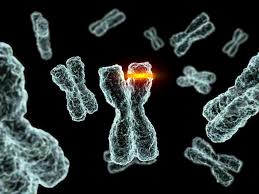
记忆方法
记忆“mutation”的方法是将其分解为“mu-ta-tion”。想象一个“mu”符号像显微镜下的DNA,然后“ta”表示一个快速的切割动作,像是DNA链被“突变”了,这样就能形成一个新的“-tion”结构,代表一种变化或者转变。通过这个视觉联想,可以记住“mutation”表示突变或变化的意思。
以上内容由AI生成, 仅供参考和借鉴
中文词源
mutation 突变,变异
来自mutate,变异,突变。
英语词源
- mutation (n.)
- late 14c., "action of changing," from Old French mutacion (13c.), and directly from Latin mutationem (nominative mutatio) "a changing, alteration, a turn for the worse," noun of action from past participle stem of mutare "to change" (see mutable). Genetic sense is from 1894.
权威例句
- 1. cells affected by mutation
- 受到突变影响的细胞
- 2. Scientists have found a genetic mutation that appears to be the cause of Huntington's disease.
- 科学家们已经发现了一种可能是引起亨廷顿舞蹈病的基因变异。
- 3. This mutation makes it better adapted than the other four.
- 这种变异使它具有比其他四只猪为大的适应能力.
- 4. Spontaneous and induced mutation occur with animals viruses.
- 动物病毒的突变有自发突变和诱发突变.
- 5. Mutation are produced by a number of chemicals.
- 许多化学试剂能产生突变.